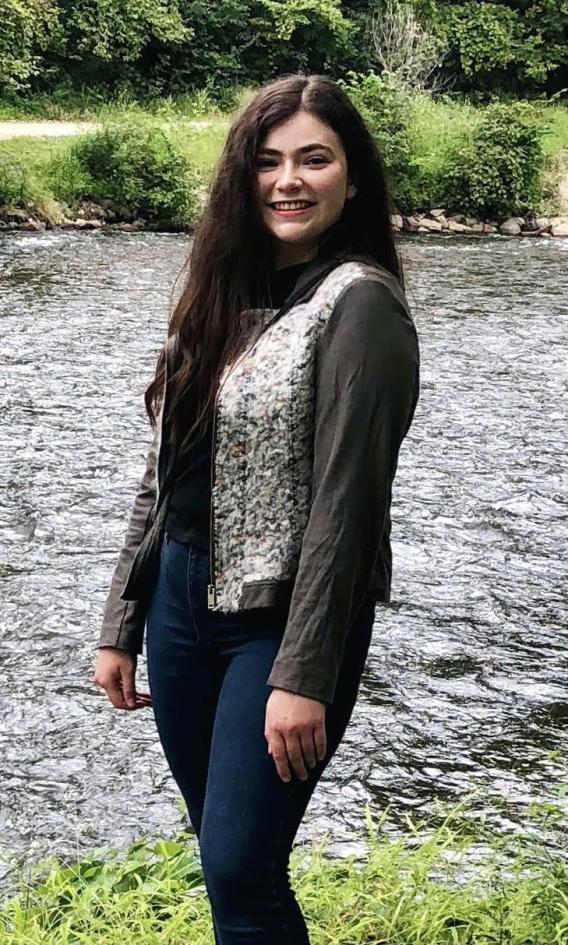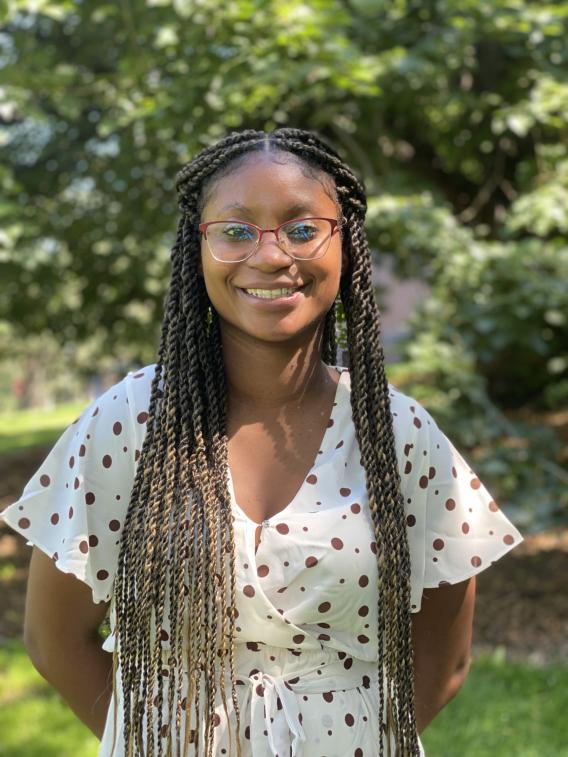Graduate Students

Clarissa Filetti
Clarissa Filetti is a doctoral candidate in the Developmental Psychology program at the University of Minnesota’s Institute of Child Development (ICD). She is interested in investigating social stress buffering during the adolescent period. She is particularly interested in exploring how parent-adolescent relationships, peer friendships, and sleep contribute to healthy functioning during this sensitive developmental period. Clarissa received her B.A. in Psychology and Family Studies from the University of St. Thomas in 2018 and worked as a Project Coordinator at the Minneapolis VA Health Care System with Drs. Melissa Polusny and Christopher Erbes before coming to ICD.

Maddie Fung
Maddie is a Ph.D. student in the Developmental Psychology program at the Institute of Child Development, working with Drs. Megan Gunnar and Kathleen Thomas. She is interested in the influence of pubertal and stress hormones on structural and functional brain development, and using both neurobiological and neuroimaging methods to explore these changes during adolescence. Currently, she is involved in the MRI Study of Stress and Social Support. Maddie received her B.S. in Biology from Creighton University in 2019 and completed a postgraduate research fellowship with Dr. Tony Wilson at the Institute for Human Neuroscience, studying neurophysiological development using magnetoencephalography (MEG).

Finola E. Kane-Grade
Finola Kane-Grade is a Ph.D. student on the Developmental Psychopathology and Clinical Science track at the Institute of Child Development (ICD). She is interested in neurobiological mechanisms linking early life stress and later psychopathology and health outcomes. Additionally, she hopes to identify protective mechanisms underlying resilience (such as social buffering) and translate this knowledge in ways that can be used to inform prevention efforts. Currently, she is involved in the Social Buffering Project. She received her B.A. in Psychology and Music Performance from the University of Wisconsin-Madison in 2016 and completed an honors thesis on stress and learning with Dr. Seth Pollak. She then completed a postgraduate research fellowship at the Yale Child Study with Dr. Katarzyna Chawarska studying early markers of autism risk, and most recently worked as a research coordinator at Boston Children’s Hospital/Harvard Medical School with Drs. Charles Nelson and Michelle Bosquet Enlow studying emotional development and risk markers for childhood anxiety

Mirinda Morency
Mirinda M Morency, a NIMH Predoctoral Fellow, is a Ph.D. candidate in the joint Developmental Psychopathology and Clinical Science program at the University of Minnesota, Institute of Child Development. Her program of research focuses on identifying protective factors across the social ecology, including school quality, peer mentoring, and parental involvement, that empower Black youth to thrive despite navigating chronic environmental stressors, such as community violence, poverty, and discrimination, rooted in structural racism. While recognizing the importance of resilience, her work also critically examines the potential long-term mental and physical health costs associated with achieving resilience (i.e., skin-deep resilience). To meet these research objectives, she integrates mixed-methods research and multiple levels of analysis.
Originally from the south suburbs of Chicago, Mirinda has a rich history of community-based participatory research in Chicago, exploring innovative violence prevention strategies. She directed a cross-age peer mentoring program aimed at mitigating adverse outcomes associated with violence exposure while fostering positive youth development. Building on this work, Mirinda partnered with Minnesota’s Hennepin County Safe Communities Department, conducting a qualitative research study to systematically understand the current landscape of violence prevention initiatives within the County. This study aimed to identify opportunities for enhanced understanding and collaboration among service areas to foster safe, healthy, and equitable communities, reimagining public safety.
Mirinda holds a Master’s in Social Work from Columbia University New York, where she provided trauma-informed clinical services to youth and adults for a few years before relocating to Minnesota. She is skilled in applying advanced modalities including Cognitive Behavioral Therapy (CBT), Dialectical behavior therapy (DBT), and Internal Family Systems (IFS) therapy to help clients build emotional resilience and navigate their recovery journey.
Mirinda aims to further unpack the cultural nuances surrounding early childhood program effectiveness, investigating for whom and under what conditions these programs yield maximum impact and reduce or eliminate risk. She strives to translate her research into culturally-sensitive, developmentally appropriate preventive interventions for youth and families, ultimately contributing to equitable health and psychological well-being.